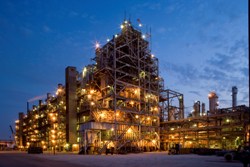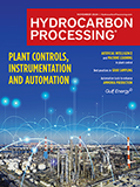Global chemical executives to target acquisitions, new products - survey
Chemical industry executives plan to soon use the significant cash on their balance sheets to pursue strategic acquisitions and new product development to spur company growth, according to a survey released Tuesday by US advisory firm KPMG.
 The growth comes despite escalating input costs, stiffer competition, and a struggling global economy, KPMG said.
The growth comes despite escalating input costs, stiffer competition, and a struggling global economy, KPMG said.
In the survey of 156 senior level chemical executives in the US, Europe and Asia-Pacific, 72% of industry executives indicate that their companies have significant cash on the balance sheet - up from 70% in KPMG's 2011 survey.
More than half (51%) say their companies' cash positions have improved from last year.
“Despite economic headwinds, the chemicals sector has experienced some positive momentum in the past year,” said Mike Shannon, global leader of KPMG's chemicals and performance technologies practice.
“The improved cash positions at many of these companies will allow them to be more aggressive to drive growth and innovation - both organically and inorganically,” he added.
Among executives, 63% plan to increase capital spending over the next year, including 81% of respondents in the Asia-Pacific region. That compares with 48% in the US and 58% in Europe.
Investing in growth
The highest priority investment areas are new products or services (35%), and the acquisition of a business (33%), according to the survey.
US executives (42% products; 45% acquisition) indicate that they plan to be much more aggressive investing in these respective areas than their Asia-Pacific (26% products; 23% acquisition) and European (36% products; 32% acquisition) peers, KPMG said.
“Overall, chemical executives are telling us that they intend to put their money to work and boost investment in key areas,” said Shannon.
“With the struggling global economy, organic growth is a challenge and input prices continue to impact production costs. All of these factors set the stage for aggressive M&A and product development strategies as companies look to gain an edge.”
Ninety percent of executives indicate that their companies are likely to be involved in a merger or acquisition in the next two years - up from 83% in KPMG’s 2011 survey.
 Once again, respondents in the US were most bullish on being buyers (48%) while European respondents were the most likely sellers (52%).
Once again, respondents in the US were most bullish on being buyers (48%) while European respondents were the most likely sellers (52%).
Executives also identified technology (29%) and geographic expansion (27%) as significant areas of investment for their companies, according to the survey.
Respondents in Asia-Pacific had the highest expectations for investment in technology (42%), and European executives (36%) plan to increase investment in geographic expansion the most.
As for where they intend to deploy that capital over the next two years, global chemical executives cite China, the US, and Europe as the geographic regions that will be the focus of investment.
However, when analyzing the individual regional responses, US and European executives showed a much stronger preference for domestic investment. China remained a favored investment location for executives in all three regions, according to the survey.
Fragile economic fundamentals
Despite the strong focus on growth and expansion, the macroeconomic environment is far more of a worry for executives than this time last year, KPMG reports.
“Executives in Europe and the US are more concerned about the state of the global economy than their counterparts in Asia,” said Paul Harnick, KPMG's global chief operating officer for the chemicals and performance technologies practice.
“Balancing potential global economic risks with the need to expand into new products and markets to capture growth will be key to success.”
Less optimistic views on revenue and hiring
Among executives surveyed, 68% expect revenue to increase next year - down from 85% in the 2011 survey.
Executives in the US were the most bullish in their revenue projections, with 73% expecting revenue to increase next year, down slightly from 77% in 2011.
Expectations for increased revenue among the Asia-Pacific and European executives decreased substantially in the 2012 survey - Asia-Pacific (69% vs. 96% in 2011) and Europe (60% vs. 82% in 2011).
“Ongoing business challenges such as the prolonged economic crisis, volatile input prices and increased pricing pressures are dampening executives' expectations,” said Harnick.
Executives also appear less optimistic on hiring, with 65% saying headcount will increase next year - down from 73% in 2011.
Asia-Pacific was most bullish, with 77% expecting to add headcount, followed by Europe at 58% and the US at 56%.
In the US, 21% of executives actually expect to decrease headcount in the next year, up from 14% in 2011.






Comments